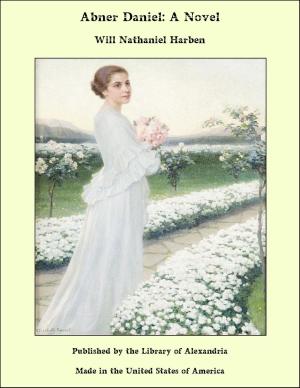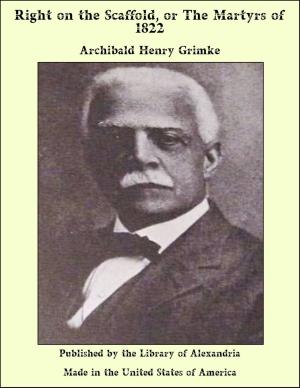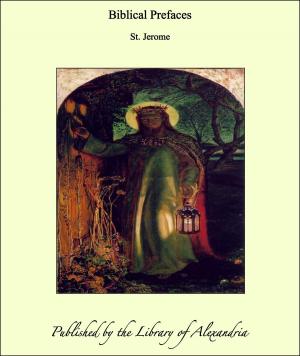| Author: | Amelia Ann Blanford Edwards | ISBN: | 9781465530981 |
| Publisher: | Library of Alexandria | Publication: | March 8, 2015 |
| Imprint: | Language: | English |
| Author: | Amelia Ann Blanford Edwards |
| ISBN: | 9781465530981 |
| Publisher: | Library of Alexandria |
| Publication: | March 8, 2015 |
| Imprint: | |
| Language: | English |
The events I am about to relate took place more than fifty years ago. I am a white-haired old woman now, and I was then a little girl scarce ten years of age; but those times, and the places and people associated with them, seem, in truth, to lie nearer my memory than the times and people of to-day. Trivial incidents which, if they had happened yesterday, would be forgotten, come back upon me sometimes with all the vivid detail of a photograph; and words unheeded many a year ago start out, like the handwriting on the wall, in sudden characters of fire. But this is no new experience. As age creeps on, we all have the same tale to tell. The days of our youth are those we remember best and most fondly, and even the sorrows of that bygone time become pleasures in the retrospect. Of my own solitary childhood I retain the keenest recollection, as the following pages will show. My father's name was Bernhard—Johann Ludwig Bernhard; and he was a native of Coblentz on the Rhine. Having grown grey in the Prussian service, fought his way slowly and laboriously from the ranks upward, been seven times wounded and twice promoted on the field, he was made colonel of his regiment in 1814, when the Allies entered Paris. In 1819, being no longer fit for active service, he retired on a pension, and was appointed King's steward of the Château of Augustenburg at Brühl—a sort of military curatorship to which few duties and certain contingent emoluments were attached. Of these last, a suite of rooms in the Château, a couple of acres of private garden, and the revenue accruing from a small local impost, formed the most important part. It was towards the latter half of this year (1819) that, having now for the first time in his life a settled home in which to receive me, my father fetched me from Nuremberg where I was living with my aunt, Martha Baur, and took me to reside with him at Brühl. Now my aunt, Martha Baur, was an exemplary person in her way; a rigid Lutheran, a strict disciplinarian, and the widow of a wealthy wool-stapler. She lived in a gloomy old house near the Frauen-Kirche, where she received no society, and led a life as varied and lively on the whole as that of a Trappist. Every Wednesday afternoon we paid a visit to the grave of her "blessed man" in the Protestant cemetery outside the walls, and on Sundays we went three times to church. These were the only breaks in the long monotony of our daily life. On market-days we never went out of doors at all; and when the great annual fair-time came round, we drew down all the front blinds and inhabited the rooms at the back
The events I am about to relate took place more than fifty years ago. I am a white-haired old woman now, and I was then a little girl scarce ten years of age; but those times, and the places and people associated with them, seem, in truth, to lie nearer my memory than the times and people of to-day. Trivial incidents which, if they had happened yesterday, would be forgotten, come back upon me sometimes with all the vivid detail of a photograph; and words unheeded many a year ago start out, like the handwriting on the wall, in sudden characters of fire. But this is no new experience. As age creeps on, we all have the same tale to tell. The days of our youth are those we remember best and most fondly, and even the sorrows of that bygone time become pleasures in the retrospect. Of my own solitary childhood I retain the keenest recollection, as the following pages will show. My father's name was Bernhard—Johann Ludwig Bernhard; and he was a native of Coblentz on the Rhine. Having grown grey in the Prussian service, fought his way slowly and laboriously from the ranks upward, been seven times wounded and twice promoted on the field, he was made colonel of his regiment in 1814, when the Allies entered Paris. In 1819, being no longer fit for active service, he retired on a pension, and was appointed King's steward of the Château of Augustenburg at Brühl—a sort of military curatorship to which few duties and certain contingent emoluments were attached. Of these last, a suite of rooms in the Château, a couple of acres of private garden, and the revenue accruing from a small local impost, formed the most important part. It was towards the latter half of this year (1819) that, having now for the first time in his life a settled home in which to receive me, my father fetched me from Nuremberg where I was living with my aunt, Martha Baur, and took me to reside with him at Brühl. Now my aunt, Martha Baur, was an exemplary person in her way; a rigid Lutheran, a strict disciplinarian, and the widow of a wealthy wool-stapler. She lived in a gloomy old house near the Frauen-Kirche, where she received no society, and led a life as varied and lively on the whole as that of a Trappist. Every Wednesday afternoon we paid a visit to the grave of her "blessed man" in the Protestant cemetery outside the walls, and on Sundays we went three times to church. These were the only breaks in the long monotony of our daily life. On market-days we never went out of doors at all; and when the great annual fair-time came round, we drew down all the front blinds and inhabited the rooms at the back















